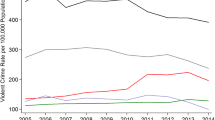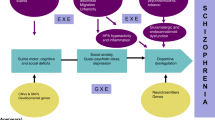Abstract
Background. As the development and use of genetic tests have increased, so have concerns regarding the uses of genetic information. Genetic discrimination, the differential treatment of individuals based on real or perceived differences in their genomes, is a recently described form of discrimination. The range and significance of experiences associated with this form of discrimination are not yet well known and are investigated in this study.
Methods. Individuals at-risk to develop a genetic condition and parents of children with specific genetic conditions were surveyed by questionnaire for reports of genetic discrimination. A total of 27,790 questionnaires were sent out by mail. Of 917 responses received, 206 were followed up with telephone interviews. The responses were analyzed regarding circumstances of the alleged discrimination, the institutions involved, issues relating to the redress of grievances, and strategies to avoid discrimination.
Results. A number of institutions were reported to have engaged in genetic discrimination including health and life insurance companies, health care providers, blood banks, adoption agencies, the military, and schools. The alleged instances of discrimination were against individuals who were asymptomatic and sometimes impacted on other asymptomatic relatives. Few surveyed respondents knew of the existence of institutions such as state insurance commissions or the Medical Information Bureau, Inc., which may play roles in redress of grievances or correction of misinformation.
Conclusions. Genetic discrimination is variable in form and cause and can have marked consequences for individuals experiencing discrimination and their relatives. The presence of abnormal genes in all individuals makes each person a potential victim of this type of discrimination. The increasing development and utilization of genetic tests will likely result in increased genetic discrimination in the absence of contravening measures.
Similar content being viewed by others
References
Holtzman N A (1989)Proceed with Caution. Johns Hopkins University Press, Baltimore.
Wilford B S & Nolan K (1993) National policy development for the clinical application of genetic diagnostic technologies: lessons from cystic fibrosis.JAMA 270: 2948–2954.
Andrews L B, Fullarton J E, Holtzman N A, & Motulsky A G, eds. (1994)Assessing genetic risks: implications for health and social policy. National Academy Press, Washington D.C.
Nelkin D & Tancredi L (1994)Dangerous Diagnostics: the Social Power of Biological Information. University of Chicago Press, Chicago.
Billings P R, Kohn M A, de Cuevas M, Beckwith J, Alper J S, & Natowicz M R. (1992) Discrimination as a consequence of genetic testing.American Journal of Human Genetics 50: 476–482.
Natowicz M R, Alper J K, & Alper J S (1992) Genetic discrimination and the law.American Journal of Human Genetics 50: 465–475.
Gostin L (1991) Genetic discrimination: the use of genetically based diagnostic and prognostic tests by employers and insurance.American Journal of Law and Medicine 17: 109–144.
Office of Technology Assessment. (1992)Genetic counseling and cystic fibrosis carrier screening: results of a survey. U.S. Government Printing Office, Washington D.C.
Dewar M A, Moseley R, Ostrer H, Crandall L, Nye D, & Allen B (1992) Genetic screening by insurance carriers.JAMA 267: 1207–1208.
NIH/DOE Working Group on Ethical, Legal, and Social Implications of Human Genome Research (1993) Genetic information and health insurance. Report of the Task Force on Genetic Information and Insurance.Human Gene Therapy 4: 789–808.
Alper J S, Geller L N, Barash C I, Billings P R, Laden V, & Natowicz M R (1994) Genetic discrimination and screening for hemochromatosis.Journal of Public Health Policy 15: 345–358.
Holtzman N A (1992) The diffusion of new genetic tests for predicting disease.FASEB Journal 6: 2806–2812.
Caskey C T (1993) Molecular medicine: a spin-off from the helix.JAMA 269: 1986–1992.
Nowak R (1994) Genetic testing set for takeoff.Science 265: 464–467.
Alper J S & Natowicz M R (1993) Genetic discrimination and the public entities and public accommodations titles of the Americans with Disabilities Act.American Journal of Human Genetics 53: 26–32.
Grindon A J (1993) Blood donation from patients with hemochromatosis.JAMA 270: 880.
Smith K (1995)Consequences of genetic discrimination. Master’s Thesis, School of Public Health, University of California, Berkeley.
Ostrer H, Allen W, Crandall L A, Moseley R E, Dewar M A, Nye D, & McCrary S V (1993) Insurance and genetic testing: where are we now?American Journal of Human Genetics 52: 565–577.
Norton C (1989) Absolutely not confidential.Hippocrates March/April: pp.53–59.
President’s Commission for the Study of Ethical Problems in Medicine and Biomedical and Behavioral Research (1983)Screening and counseling for genetic conditions: a report on the ethical, social, and legal implications of genetic screening, counseling, and education programs, Washington D.C.
McEwen J E, McCarty K, & Reilly P (1992) A survey of state insurance commissioners concerning genetic testing and life insurance.American Journal of Human Genetics 51: 785–792.
Holtzman N A & Rothstein M A (1992) Eugenics and genetic discrimination.American Journal of Human Genetics 50: 457–459.
Natowicz M R, Alper J K & Alper J S (1992) Genetic discrimination and the Americans with Disabilities Act.American Journal of Human Genetics 51: 895–897.
Equal Employment Opportunity Commission. (1995) Compliance Manual, March 14; volume 2: EEOC order 915.002, section 902. Washington D.C.
McEwen J E & Reilly P R (1992) State legislative efforts to regulate use and potential misuse of genetic information.American Journal of Human Genetics 51: 637–647.
Author information
Authors and Affiliations
Additional information
All authors contributed equally to this work.
This work was supported by a grant from the U.S. Department of Energy and funding from the Department of Mental Retardation of the Commonwealth of Massachusetts.
Rights and permissions
About this article
Cite this article
Geller, L.N., Alper, J.S., Billings, P.R. et al. Individual, family, and societal dimensions of genetic discrimination: A case study analysis. Sci Eng Ethics 2, 71–88 (1996). https://doi.org/10.1007/BF02639319
Received:
Revised:
Accepted:
Issue Date:
DOI: https://doi.org/10.1007/BF02639319




